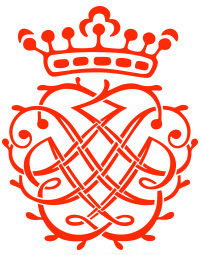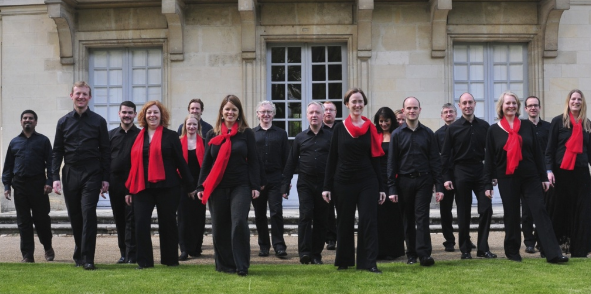Pegasus Choir
7-30pm Saturday 20 May 2017
St Andrew’s Church, Farnham, GU9 7PW
JS Bach: Mass in G, BWV 236
JS Bach: Sanctus in D, BWV 238
Bach Cantata Aus der Tiefen ruf ich, Herr, zu dir BWV 131
Bach Cantata Nach dir, Herr, verlanget mich BWV 150
The concert given by the Tilford Bach Society on 20 May in St Andrew’s Church Farnham featured Pegasus, the excellent chamber choir and an instrumental ensemble. The conductor was Matthew Altham, the director of Pegasus. The Tilford Bach Society has hosted concerts by Pegasus several times in recent years and those members of the audience who were expecting to hear great things were not disappointed. The concert started with two of Bach’s earliest cantatas. BWV 131, Aus der Tiefe rufe ich (Out of the depths I cry to you, O Lord…) starts with a sinfonia for strings with a plaintive oboe solo: the chorus enters surprisingly softly but adds more urgency at Lord, hear my voice. A beautiful arioso for bass, accompanied by a semichorus singing the chorale on which the cantata is based, with the oboe providing an obbligato was very effective and after a short chorus there was a matching arioso for tenor with another semichorus. No oboe this time, but a more complex continuo. The final chorus O Israel, hope in the Lord was sung quietly, as at the beginning. The other cantata, BWV 150, Nach dir, Herr, verlanget mich (To you, O Lord, I lift up my soul) calls for even slimmer instrumental resources: neither viola nor oboe is used. The chorus movements use the words of Psalm 25 with the intervening movements providing a commentary: there is a fine soprano aria for the third movement. The middle movement is particularly notable for word-painting: Lead me in your truth includes a 3½ octave scale in B, starting with the basses, continuing through the choir voices in turn and ending with high notes on the violins.It was followed by an effective trio for alto, tenor and bass soloists with a particularly vigorous basso continuo: Cedars must often feel much hardship against the wind…but his word teaches otherwise. After another verse from the psalm the final chorale offers a note of consolation. The Mass in G, BWV 236, is a mature work, much more like the Bach we are used to, written while Bach was cantor of St Thomas’s Church in Leipzig, and calls for a larger instrumental ensemble (strings, 2 oboes, basso continuo). The choral writing also sounded fuller and more complex. There is ample work for the soloists, too, including an athletic bass solo Gratias agimus (We give thanks to thee for thy great glory) with vigorous interplay between the singer and the bass instrumental part. There is similar interplay between the soprano and alto soloists in Dominus Deus (Lord God, Lamb of God) and between the tenor and the oboe in Quoniam tu solus (For thou only art holy). The mass ends at the conclusion of the Gloria, because in the Lutheran church in Bach’s day a mass consisted of the Kyrie and the Gloria only; but for this evening it was followed by a Sanctus in D major, BWV238, also from Bach’s Leipzig period, having been performed at Bach’s first Christmas in that town. In his Lutheran masses Bach uses music taken from his previous compositions (a common practice at that time) but in spite of that the music is well worth hearing; in some ways it is rather a pity that these works are overshadowed by the great Mass in B minor. In Bach’s day the solo part were commonly sung by members of the choir and an expert group like Pegasus contains several singers fully able to perform the solos, and this evening all of the soloists were drawn from the chorus, as is their usual practice, which is not only authentic but also brings the performance into a unity it would not otherwise achieve. Special mention must be made of the instrumentalists, led by Adrian Butterfield, the Music Director of the Tilford Bach Society, and who made such an indispensible contribution to the concert. It was particularly refreshing to see so many young players and the obbligato players were outstanding: cello, organ and especially the oboe.
Report by John Mansfield
Pegasus
Pegasus is one of London’s most accomplished chamber choirs, critically acclaimed and award-winning for its imaginative programmes of music from the Renaissance to the present day. Part of London’s musical life for 20 years, Pegasus is known for its outstanding performances and imaginative programming. The ensemble gives about a dozen concerts a year with its director, Matthew Altham, and occasional guest conductors. Pegasus has performed at the Tilford Bach Festival, the London Festival of Contemporary Church Music and the Proms at St Jude’s, and at various venues including the Queen Elizabeth Hall, St Martin in the Fields and the Almeida Theatre, as well as many churches in London and elsewhere in England. The choir has worked with the Southbank Sinfonia under the direction of John Rutter, and with the London Handel Players under Laurence Cummings and Adrian Butterfield, including Handel’s Israel in Egypt as part of the 2014 London Handel Festival. Pegasus has performed with renowned ballet dancer Carlos Acosta in four productions at the London Coliseum and the Royal Opera House, Covent Garden, and at The Place for Dance in London. The choir has a strong tradition of presenting concerts in collaboration with charities and music societies.


